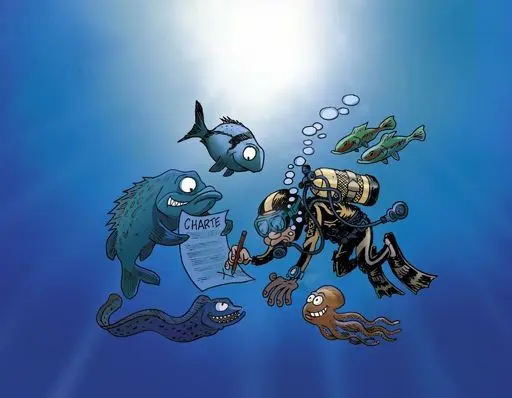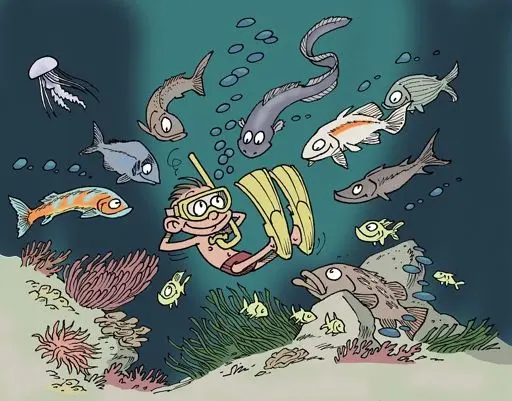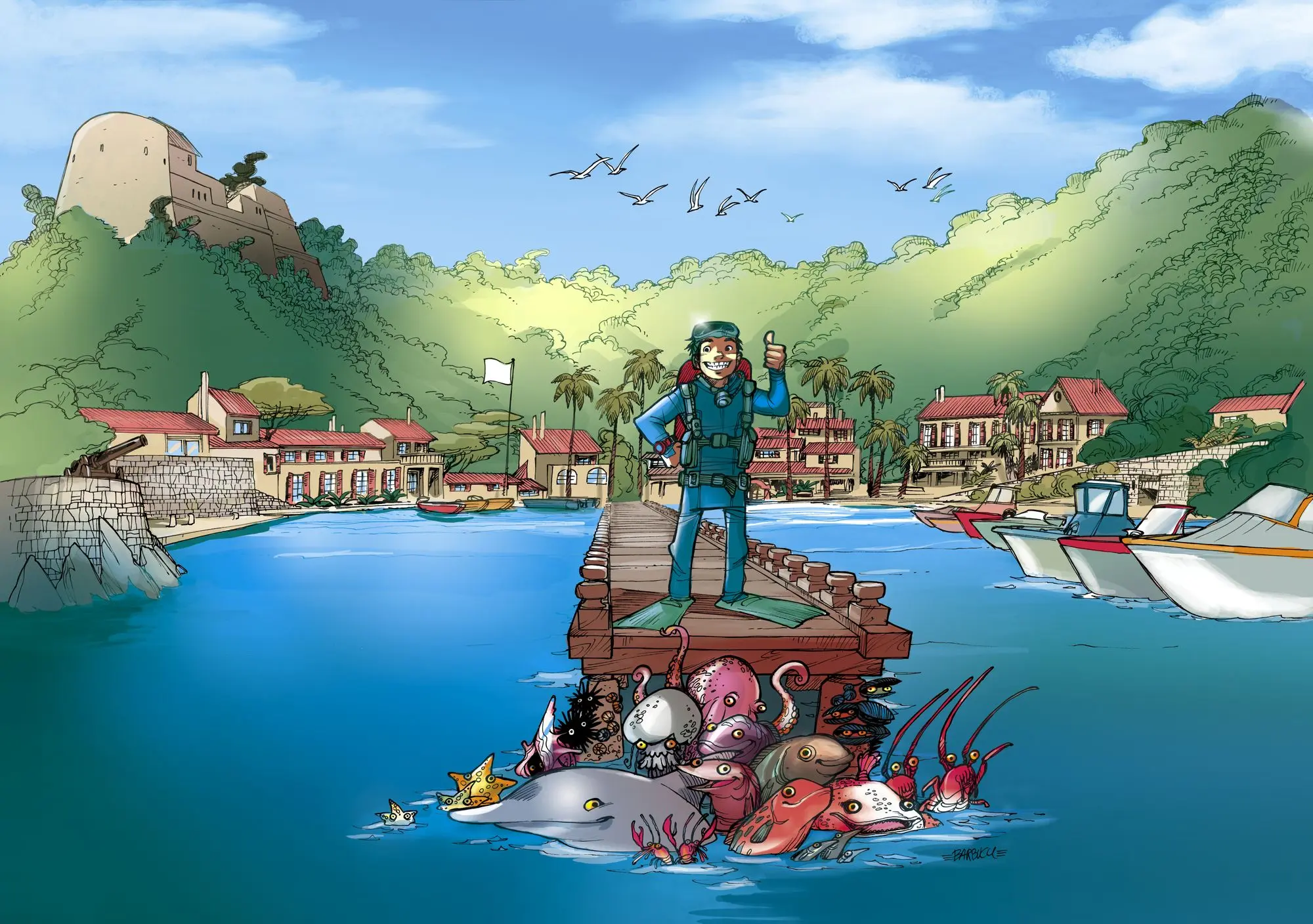Diving in the Port-Cros national Park
Created in 1963, the Port-Cros National Park was the first marine park in Europe. It is an area covering islands, coastlines and sea with a distinct identity due its outstanding Mediterranean landscapes and seascapes.
The National Park includes 120,000 hectares of sea (30% of which is classified as the “core” of the National Park) governed by strict regulations. Recreational diving has become one of the main attractions of the Port-Cros National Park, making it one of the top diving destinations in the Mediterranean.
In the summer of 1991, 11,700 dives were recorded on the island of Port-Cros. At the time, 70% of dives took place at La Gabinière and 30% explored the Barge aux Congres, the Pointe du Vaisseau and the Pointe de la Galère.
As diving boomed in the early 1990s, the National Park approached local diving organisations to work together on a framework regulating the activity that would give users a greater sense of responsibility.
Port-Cros National Park Resolution No. 14/92: the development of diving, the risks to fauna and flora, the desire to propose regulations to organise diving activities. An annual meeting to address these issues has taken place every year since 1992.
The first French diving charter was signed in 1994. Twenty or so establishments voluntarily agreed to restrict the number of people visiting the sites and to ensure that divers behaved in a way that respects the marine environment.
At the end of the 1990s, the Park began to consider changes to marine regulations and how areas were organised and used, dividing them into distinct geographical zones for diving and/or professional fishing. Six dive sites were established, where mooring is prohibited except on specific facilities, and fishing is banned within a 100 metre radius of these mooring facilities.
1994 to 2003: Partnership charter with diving organisations

In 2004, continued cooperation between actors involved in scuba diving and the Port-Cros National Park led to the co-development of a diving charter, to be complied with by diving organisations and individuals.
2004 to 2016: Charter becomes compulsory for all, permits are issued by the director
Diving becomes accessible only to divers who have signed the Charter. This system is exemplary and has since been applied in other protected Mediterranean marine areas, demonstrating the value of making marine conservation objectives a joint effort, while also taking into account the expectations of professionals and users.
In 2016, the partners and the National Park decided to transform the Charter into regulations, including all the “core marine areas” of the National Park (the islands and islets of Port-Cros and Porquerolles); with this transformation, the partners’ commitments become binding.
2016: Diving regulations extended to the two core marine areas (Port-Cros and Porquerolles)

These dive sites feature unspoilt environments conducive to biodiversity.
Diving management in the Port-Cros National Park aims to:
- Preserve the quality of the marine environment by promoting good conduct and a better spatial and temporal distribution of diving activities.
- Ensure high-quality diving in the core marine areas: preserving the environment, the quality of observation, divers’ safety and comfort.
- Showcase and promote the underwater heritage of the adjacent marine area.
Permission to dive
Scuba diving in the waters of the Port-Cros National Park requires permission from the Director. To obtain it, you must agree to abide by the diving regulations.
Request permission to dive: register and sign the regulations.
Consult the regulations.
Reporting dives
Permits are issued subject to reporting all dives carried out at the various sites in the core marine areas of the National Park: the islands and islets of Port-Cros and Porquerolles. By signing the Charter and then the Regulations, local diving facilities agree to provide a detailed report of all dives performed each year at the end of the season.
Good management of environments and areas by the National Park depends on detailed knowledge of the number of visitors to its land and marine sites. This information is essential, in particular to anticipate possible conflicts of use or, if necessary, to adapt the facilities for diving vessels, with a view to constantly balancing the different nautical activities.
The CaPeL website was set up to make it easier to report your dives on a daily basis. All divers and organisations holding permits to dive in the core of the National Park must report their dives.
Cooperation is based on dialogue and is driven by a shared interest in the marine environment and its protection. Information on the activities undertaken in the National Park is invaluable to ensure that they are carried out sustainably, respecting both people and the environment. Divers are asked to take particular care when reporting their dives on the site.
